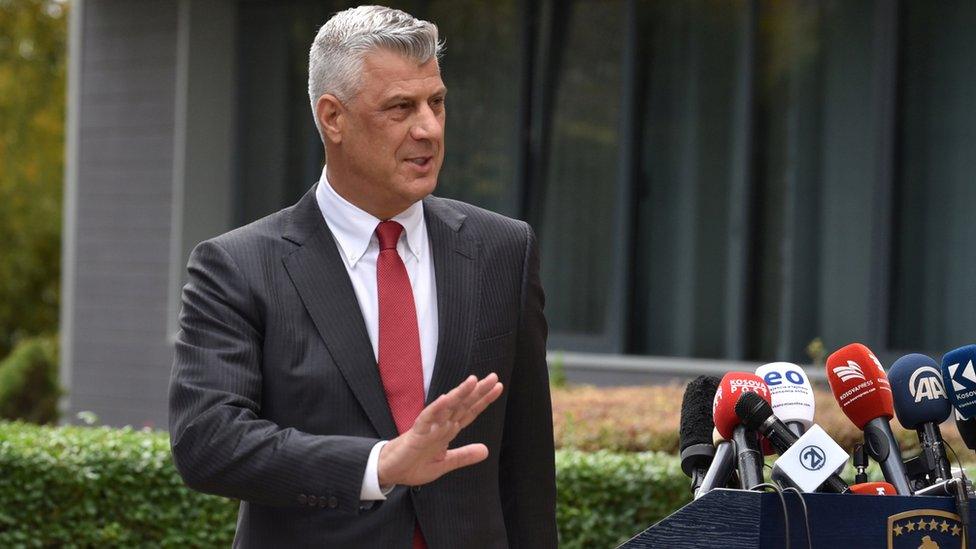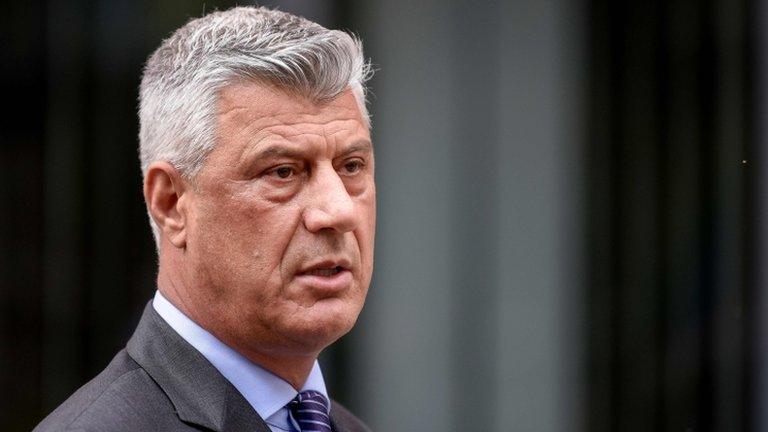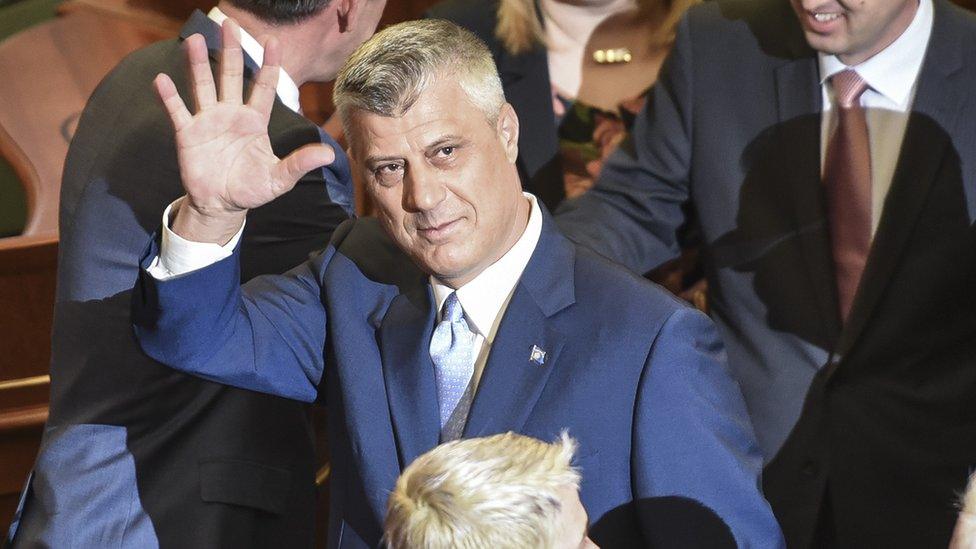Kosovo leader Thaci in Hague detention over war crimes charges
- Published

Mr Thaci told reporters he believed in "truth, reconciliation and the future of our country"
Kosovo President Hashim Thaci is being held in detention in The Hague, hours after resigning from office to face a war crimes indictment.
He and two other suspects were flown to the Dutch city, external on Thursday, the international court said.
Earlier this year a special prosecutor accused Mr Thaci and others of being "criminally responsible" for 100 murders, during Kosovo's 1998-99 independence war against Serbia.
Mr Thaci denies any wrongdoing.
A former senior commander of the Kosovo Liberation Army (KLA), he later turned to politics, in common with a number of KLA colleagues.
Other ex-KLA fighters fly to The Hague
Two other former KLA officials were also on the plane, the Koha Ditore website reported: Kadrim Veseli, leader of the Democratic Party of Kosovo, and Rexhep Selimi, a Kosovo MP. Mr Veseli said he was travelling voluntarily to face "unjust accusations".
Former KLA spokesman Jakup Krasniqi, 69, who later became president of Kosovo, was arrested on Thursday night by police working for the EU mission in Kosovo and taken to the Hague earlier. He faces charges of war crimes and crimes against humanity.
Why now?
Mr Thaci said he was stepping down to ensure he would not face trial while serving as president. He said his resignation would "defend the integrity of the state", and he called on people to remain calm.
His indictment had been expected since the special prosecutor made accusations in June that the Kosovo leader was "criminally responsible for nearly 100 murders", torture and enforced disappearances.
The Kosovo Specialist Chambers (KSC) was set up in 2015 to investigate alleged crimes against ethnic minorities and political opponents by the KLA during the war in which Kosovo broke away from Serbia. The tribunal operates under Kosovo law but is staffed by international judges and prosecutors.
A 2011 Council of Europe report named Mr Thaci as the leader of a criminal offshoot of the KLA Kosovo Liberation Army. At the time he condemned the allegations as baseless. He spent several days with prosecutors in The Hague in July and made it clear at the time that he would stand down if he faced trial.
Serbia has already put on trial a number of former soldiers, paramilitaries and police for the killing of ethnic Albanians during the conflict at the end of the 1990s.
'Hope for thousands'
Human rights groups welcomed news of the indictment. It "brings hope for thousands of victims of the Kosovo war who have waited for more than two decades about the horrific crimes committed against them and their loved ones", Jelena Sesar, Balkans Researcher at Amnesty International said in a statement.
Mr Thaci has been in power in Kosovo since the end of its independence war, which cost more than 10,000 lives and only ended after an air campaign by Nato, a defence alliance in the North Atlantic.
Kosovo declared its independence in 2008. It has been recognised by the United States and major European Union countries.
Kosovo's ethnic Albanian majority view the KLA, which rebelled against Belgrade when Kosovo was a province of Serbia, as heroes.
Reconciliation between the ethnic Albanian population and the Serb minority remains elusive.
Parliamentary speaker Vjosa Osmani will act as president until a new leader is elected.
- Published24 June 2020

- Published8 April 2016
